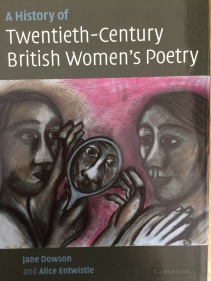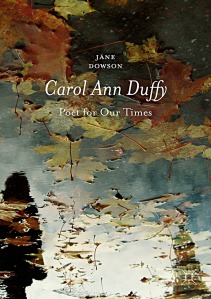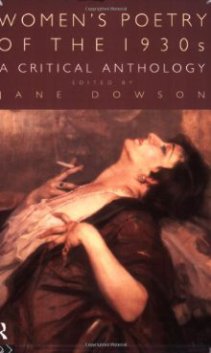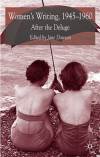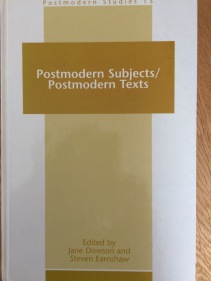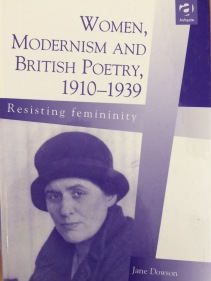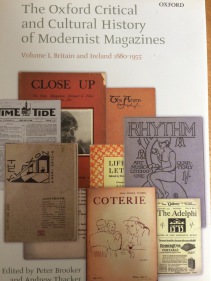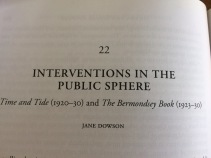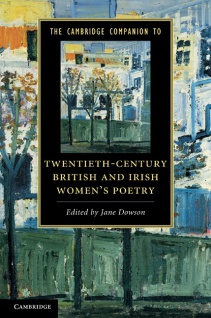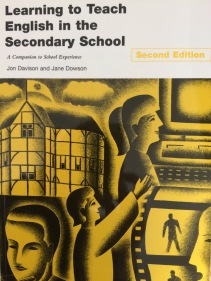Selected reviews of my books
The Cambridge Companion to Twentieth-Century British and Irish Women’s Poetry
- ‘Dowson refocuses the reader’s attention away from identity politics, and toward “a more mobile and holistic vision of gender and art” (xiii). These essays, she states, are concerned both with giving a range of women poets the critical attention that had previously been withheld or misdirected, and with establishing new critical paradigms to consider them. Dowson does not distance women from the influence of a male-dominated poetic canon and its associated forms, but shows how, like Duffy, some women poets have “made history” by remaking them. … The Companion offers the reader a female poetic canon that spans both early- twentieth-century poets and those contemporary to its publication. … No chapter is confined to a single author; the contributors make multiple connections across historical and literary moments, such as the First and Second World Wars, feminism, Modernism and postmodernism, and postcolonial and “intercultural” authorship. (Emily Blewitt, Cardiff University, Contemporary Womens Writing, 7.2. July 13: 28-9)
- ‘This is an immensely rich collection in terms of the range of poets discussed, thematic focus and critical perspectives.’ (Professor Mary Eagleton)
A History of Twentieth-Century British Women’s Poetry
- ‘This is the most comprehensive history of British women's poetry of the 20th century yet to appear. It is a work of energetic and scrupulous criticism, charting the courses of women's poetry through lucid categories - modernist, post-war and postmodern - that illuminate without limiting, considering the different feminist poetics and histories at work in texts. Its generous pluralism works with difference rather than sameness, and embraces Welsh, Scottish and Irish poets, American settlers, black, and British Asian writers. Moving easily between history and criticism, the book is also a scholarly resource, with an impressive checklist of works by individual poets and a catalogue of anthologies of women's poetry compiled in the twentieth century. It is an altogether exciting and distinguished achievement, a book where the reader constantly makes new discoveries.' (Professor Isobel Armstrong)
- ‘This book is an outstanding achievement. Its strengths are comprehensiveness and a matching of chronological progression with critical alertness. It is a reference book but also a book of ideas.’ (Professor Marion Shaw, Loughborough University, publisher’s reader (reproduced on back cover).
Women’s Writing 1945-60: After The Deluge.
- ‘Although compact, Dowson’s book offers a comprehensive look at a wide range of texts by women. … Dowson’s fine introduction grounds the literature in the historical context. … Too often, scholarly works on women’s writing settle for discussions of femininity, domesticity, and relationships between women and men. The great value of Dowson’s work lies in its ability to analyze gender thoroughly, while also offering a broad picture of British culture, history and politics’. Carolyn Perry, Westminster College, Literature and History, 15.1. (Spring 2006): 89-91.
Women, Modernism and British Poetry 1910-39: Resisting Femininity.
- ‘The publication of Jane Dowson’s brilliant and ground-breaking book is a major literary event, marking the twenty-first century’s rethinking of the literary and cultural work of twentieth-century women poets. Dazzling in its scholarship … The new map of poetic modernism drawn by Jane Dowson gives readers a whole new world of modernist masterpieces. It is a triumph!’ Professor Jane Marcus, New York. (Full version on back cover.)
- ‘Marketed as an important literary history, Jane Dowson’s most recent book certainly fulfils that characterization. … Ultimately, Dowson’s book is an important contribution to the discussion about defining modernism in a more pluralistic manner.’ Molly Youngkin, California State University, English Literature in Transition 47.4. (2004): 463-6.
- ‘Jane Dowson’s work traverses boundaries … Dowson successfully argues for a pluralised modernism or modernisms … Such a study has long been needed … Dowson [is] to be praised for the ambition of her undertaking and for the complexity with which [she] retells long oversimplified histories. … required reading that will no doubt inspire future scholarship’. Laura Severin, North Carolina State University, Tulsa Studies in Women’s Literature, 21.2. (Fall 2002): 399-402.
- ‘This book impressively surveys a wide range of poetry by British and American women writers in the context of their resistance to conventional notions of femininity. … Dowson is a knowledgeable guide throughout the work of early twentieth-century women poets. … an invaluable reference.’ Kathleen M Helal, Virginia Woolf Bulletin (12 Jan 2003): 57-60.
- ‘A detailed, indeed impressive, as well as useful, chronology of women’s poetic enterprises, 1910-1939, precedes Jane Dowson’s rigorous study.’ Marilyn Hoder-Salmon, NWSA Journal, Bloomington, 15.3. (Fall 2003): 1-3. Reproduced LION.
Women’s Poetry of the 1930s
- ‘Jane Dowson’s work will mean that we shall have to redraw the maps of English literature between the wars.’ Professor John Lucas, publisher’s reader (Back cover blurb).
- ‘I find this anthology wonderfully illuminating, a major contribution to our knowledge of the concerns of those practising poetry in this decade, and a welcome record of voices which should never have been consigned to silence.’ Elizabeth Maslen, Critical Survey, 8.3: 338-9.
- ‘Jane Dowson’s immaculate research has undoubtedly discovered 20 brave and unconventional individuals’. Kate Clanchy, Independent (3 Feb. 96).
- ‘The best news: Jane Dowson’s anthology of Thirties poets is an important and welcome book, which definitively corrects the long-standing fallacy that only men wrote poetry in the 1930s.’, Jan Montefiore, PN Review 113: 69-70.
- ‘Students and scholars alike should find it a useful resource’, Robert Nye, Times (25 Jan. 1996).
- ‘This lively anthology attempts to salvage and reassess the women poets who worked in the long shadow of the Auden Generation’, Independent on Sunday (3 Dec. 1995): Mag 42.
- ‘How I wish I had come across it earlier. … I’m finding it really helpful in the book I’m now starting [Modern British Poetry 1900-39].’ Professor Jim Persoon, Grand Valley State University, Michigan, Letter (5 June, 2000).
- See also William Fiennes, TLS (1 March 96); Carol Rumens, Poetry Review, 85.4. (95/6): .23-4.
Selected Poems of Frances Cornford
- ‘I must congratulate you on a very neat job. … It is a shame that there seems to be a paucity of comment on Frances Cornford.’ Professor Philip Hobsbaum, email, (17 Apr. 2006).
‘Anthologies of Women’s Poetry: Canon-breakers, Canon-makers’. British Poetry from the 1950s to the 1990s: Politics and Art
- ‘Two of the book’s most successful and interesting essays are by Jane Dowson and Lyn Pykett. Taking an inductive—rather than the typical deductive—approach to women’s poetry…’. Gregory LeStage, Times Higher (13 March 98).
The History of British Women’s Writing, Vol. 10, 1970-Present, edited by Mary Eagleton and Emma Parker.
‘ the chapter that will be most useful to me is Jane Dowson’s “Poetry on Page and Stage.” Her overview of game-changing anthologies and magazine special issues, as well as their often mixed receptions, is pure gold. She tracks laureateships, Oxford poetry chairs, the shifting status of lyric and experiment, and the importance of poetry performance as a mode of innovation that shapes who gets heard. My reading/ listening list is now twice as long.’ (Leslie Wheeler, 10 February 2018)
https://lesleywheeler.org/2018/02/10/peering-across-the-atlantic/
